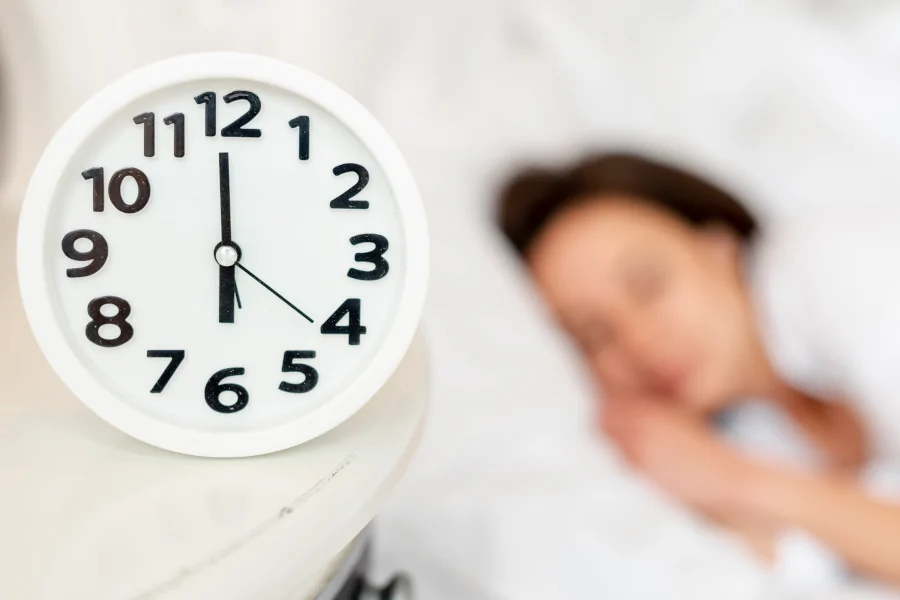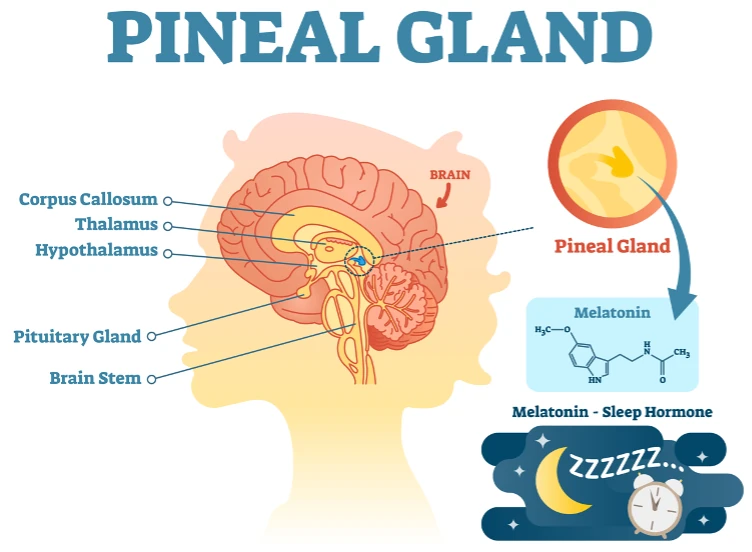Sleep is essential for our well-being, but many people need help determining their optimal sleep needs. Despite its importance, sleep deprivation is a real concern in the United Kingdom. Research showed that 37% of individuals aged 18 years and above experience difficulties falling asleep or staying asleep throughout the night. This statistic highlights the importance of addressing sleep-related issues and promoting healthy sleep habits.
The ideal amount of sleep can vary from person to person based on factors such as age, lifestyle, and individual needs. However, individuals can improve their sleep quality and overall health by recognising signs of potential sleep deprivation. This article will provide a general guideline to help you better understand your sleep requirements.
Why sleep matters
Sleep is an essential biological function that maintains physical and mental well-being. During sleep, our bodies undergo restorative processes that help repair tissues, consolidate memories, and recharge our energy levels for the upcoming day. Sleep debt refers to the cumulative effect of not getting enough sleep over an extended period. It occurs when an individual consistently fails to obtain the recommended amount of sleep needed for their age and lifestyle.
Each night of insufficient sleep contributes to the buildup of sleep debt, which can negatively impact various aspects of health and well-being. While many people believe they can catch up on missed sleep during the weekend, this method is ineffective in fully recovering from the detrimental impacts of sleep deprivation.
Short-term effects of sleep deprivation include impaired cognitive function, mood disturbances, weakened immunity, increased stress levels, and reduced alertness and productivity. Chronic sleep deprivation can lead to significant long-term health risks, such as cardiovascular disease, obesity, diabetes, and even reduced life expectancy. It also affects your body’s immune defences, making you more susceptible to illnesses and infections. Research shows that depriving oneself of the recommended amount of sleep can lead to poor academic performance.
Neglecting adequate sleep also has far-reaching consequences on cognitive function, mood, and overall health. Moreover, participants who slept an average of 6 hours or less per night were about 2.5 times more likely to experience frequent mental distress than those who slept more than 6 hours.
Recommended sleep by age
Sleep requirements vary considerably throughout life. From infancy to adolescence and adulthood, our bodies undergo significant changes that impact our sleep needs. Understanding these age-specific recommendations is crucial for promoting optimal growth, development, and overall well-being.
Sleep needs for infants (0-12 months)
Newborns and infants require substantial sleep to support their rapid growth and development. During the first few months of life, infants typically sleep between 14 and 17 hours per day, gradually decreasing to around 12 to 15 hours by the time they reach 12 months.
Sleep needs for toddlers (1-2 years)
As infants transition into the toddler stage, their sleep needs decrease, yet adequate rest remains essential for growth and development. Toddlers often face common sleep challenges, such as resistance to bedtime routines and awakenings. The recommended sleep range for this age group is 11 to 14 hours per day, including naps.
Sleep needs for young children (3-5 years)
Preschool-aged children require ample sleep to support their cognitive, physical, and emotional development. During these years, many children gradually transition from regular daytime naps to relying solely on night-time sleep. The recommended sleep duration for young children is 10 to 12 hours per day.
Sleep needs for children (6-13 years)
As children progress through elementary and middle school, their sleep requirements decrease from preschool. However, adequate sleep remains essential for their physical growth, cognitive development, and emotional well-being. Children in this age range typically need between 9 and 12 hours of sleep per night.
Sleep needs for teenagers (14-17 years)
Adolescence brings about significant biological changes that can contribute to later sleep-wake patterns. The onset of puberty and fluctuating hormones often lead teenagers to experience a shift in their circadian rhythms, making it more challenging for them to fall asleep earlier. The recommended sleep range for teenagers is 8 to 10 hours per night, although individual variations may exist.
Sleep needs for adults (18-64 years)
The recommended sleep duration for most healthy adults is between 7 and 9 hours per night. Adequate sleep is crucial in maintaining overall health and well-being, supporting cognitive function, regulating mood, and promoting physical recovery and repair.
Sleep Needs for Later Years (65+)
As individuals reach their later years, their sleep patterns may change, with many experiencing more fragmented sleep or an increased likelihood of developing sleep disorders. Nevertheless, prioritising good sleep hygiene and aiming for 7 to 8 hours of sleep per night remains essential for older adults to support their overall health and quality of life.
Individual sleep needs: finding your sleep sweet spot
While the recommended sleep durations for each age group serve as general guidelines, it’s essential to recognise that individual sleep needs vary considerably. These averages do not account for the unique factors influencing an individual’s optimal sleep requirements.
The primary determinants of personal sleep needs include:
Activity Level: People who lead a highly active lifestyle or engage in physically demanding occupations, like athletes, may require additional sleep to facilitate muscle recovery. On the other hand, individuals with a more sedentary routine might feel well-rested with slightly less sleep.
Health Conditions: Certain medical disorders, such as sleep apnoea, insomnia, or chronic pain, can disrupt sleep quality and duration, potentially increasing the overall sleep requirement.
Genetic Factors: Some individuals may be genetically predisposed to require more or less sleep than the average person.
Stress Levels: Stress can interfere with the ability to fall and stay asleep, often leading to an increased need for sleep to compensate for the disruptions.
To determine a personal sleep sweet spot, it’s essential to:
- Monitor your sleep patterns and energy levels over an extended period by maintaining a sleep diary.
- Track the amount of sleep you get each night and your overall sense of alertness and productivity throughout the day.
- Pay attention to how you feel after varying sleep durations and identify the range that works best for you.
- Evaluate your sleep environment and make necessary adjustments to promote better sleep quality.
- Consider your lifestyle factors, such as stress levels, exercise habits, and dietary patterns, as they can influence sleep needs.
Experimenting with different sleep schedules and durations can also provide valuable insights, although adhering to consistent sleep and wake times is generally recommended. Remember, finding your sleep sweet spot may require patience and self-awareness, as individual sleep requirements can change over time due to age, lifestyle, and overall health.
Signs you are not getting enough sleep
Sleep deprivation can manifest in various ways, and recognising the signs can be crucial for addressing potential sleep-related issues. When you consistently fail to meet your body’s sleep needs, you may experience various physical, cognitive, and emotional symptoms that can significantly impact your overall well-being.
Excessive Drowsiness: One of the most common signs of inadequate sleep is the overwhelming desire to sleep during the day. Individuals may struggle to stay awake and alert, even during routine activities.
Excessive Daytime Fatigue: Sleep deprivation can cause persistent tiredness and lethargy throughout the day, even after seemingly adequate night-time sleep.
Difficulty in Concentration: Insufficient sleep can impair your ability to focus and concentrate, making it challenging to perform tasks that require sustained attention.
Mood Disturbances: Sleep deprivation can contribute to irritability, mood swings, and increased emotional reactivity.
Impaired Cognitive Function: Lack of sleep can negatively affect cognitive abilities, including memory, problem-solving skills, and decision-making capabilities.
Increased Appetite and Weight Gain: Sleep regulates the hormones responsible for appetite and satiety, leading to increased hunger and potential weight gain.
Delayed Reaction Times: Sleep deprivation can slow down an individual’s reflexes and reaction times, increasing the risk of accidents, particularly when operating vehicles or machinery.
Headaches and Physical Discomfort: Inadequate sleep can trigger tension headaches, migraines, and other physical discomforts, making it difficult to carry out daily activities effectively.
In extreme cases of chronic sleep deprivation, individuals may experience involuntary microsleep episodes, slurred speech, hand tremors, and even hallucinations. Furthermore, chronic sleep deprivation can lead to impaired judgement and increased impulsivity, which in turn can result in reckless behaviour.
Prioritise sleep for a healthier, happier you
Sleep is a fundamental pillar of well-being that should be prioritised for a healthier and happier life. From infancy to adulthood and later years, adequate sleep is essential for growth, development, cognitive function, and overall health. Finding your personal sleep sweet spot requires self-awareness, experimentation, and monitoring energy levels and productivity in response to different sleep durations.
Achieving restorative sleep not only depends on the quantity of hours spent in bed but also on the quality of sleep. Individuals can get high-quality, uninterrupted sleep by prioritising good sleep hygiene habits, establishing consistent sleep schedules, creating a conducive sleep environment, and practising relaxation techniques.
Remember, investing in your sleep is an investment in your overall health and well-being.
How can Dr Dipesh Mistry help?
Sleeping 7 to 9 hours every night can prove to be a difficult task. There can sometimes be an underlying health cause which may need to be addressed to allow you to return to good-quality sleep. If this is the case, it is important to identify the root cause as soon as possible and take the right steps to ensure the best treatment and care is given.
As a leading sleep physician and psychiatrist, we offer consultations for those struggling to sleep. Please contact us if you are worried about your sleep.










